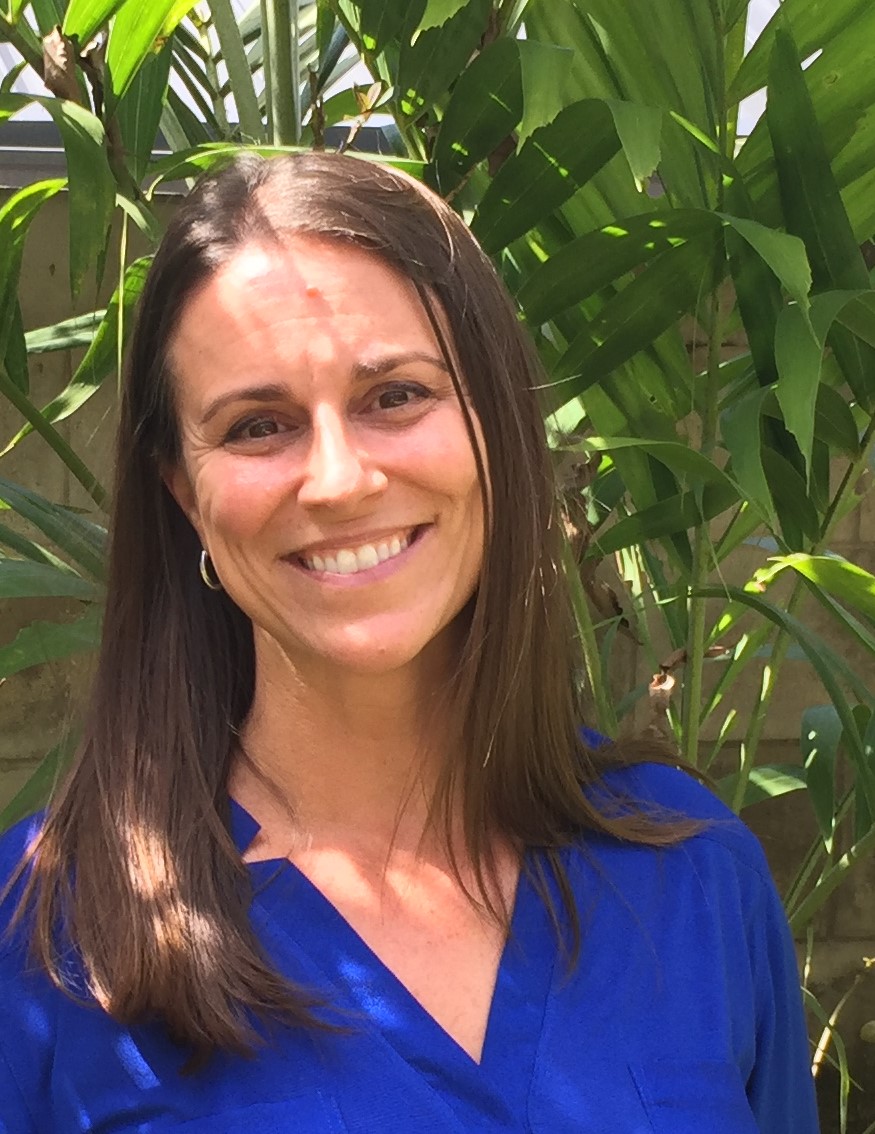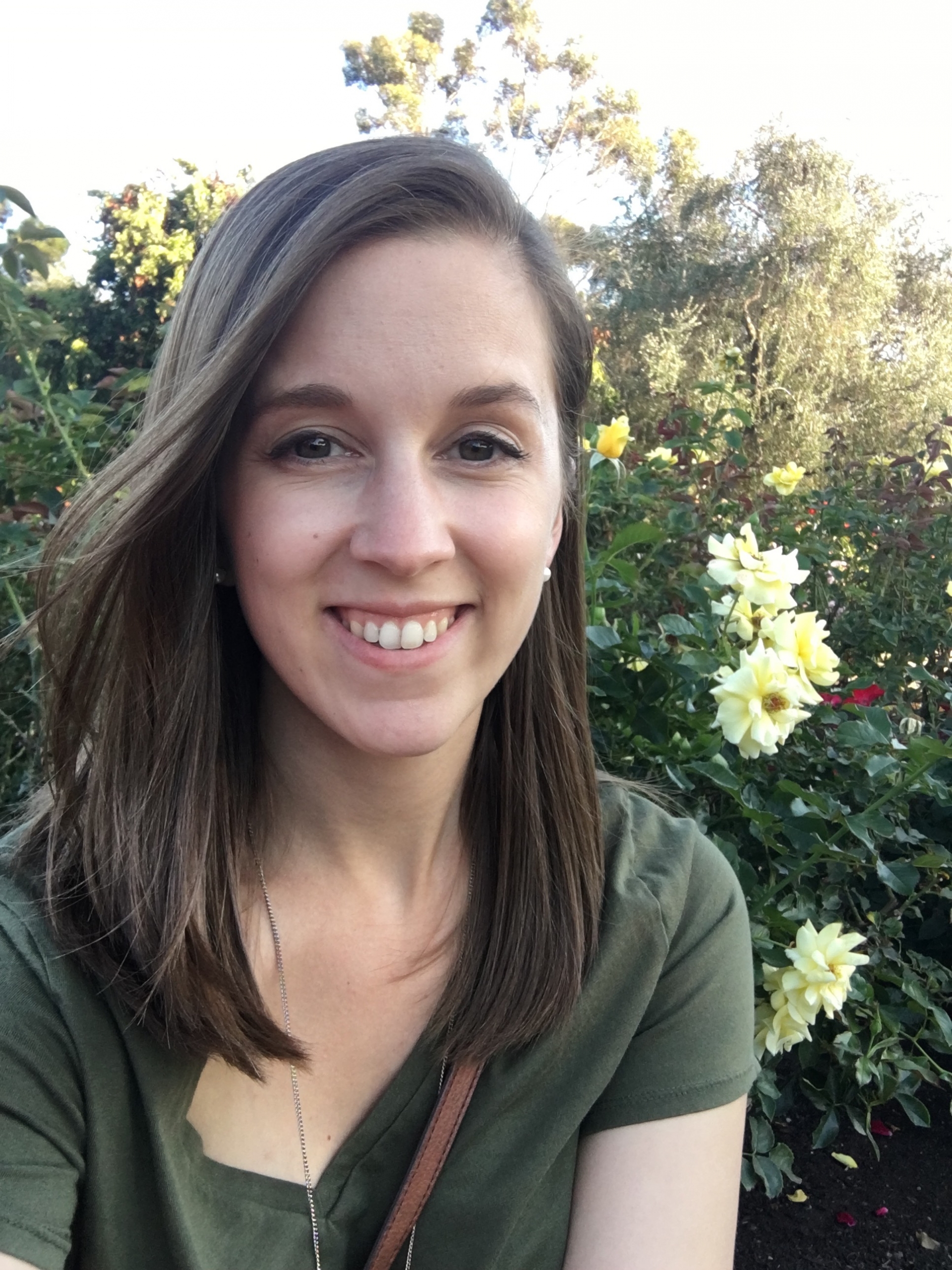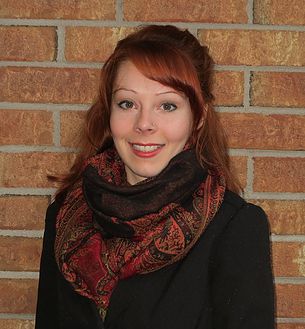.
ABOUT THE CONFERENCE
.
Equitable Teaching Practices in Psychological Research Methods and Statistics: Professional Development Conference
The third annual UC Psychology Teaching and Learning Conference is a two-day event designed for psychology instructors and graduate student teachers at all levels, from various institutions who are interested in enhancing their teaching strategies and creating or refreshing their teaching materials. The conference is hosted by teaching professors from the UC system. Our goal is to provide a community space to discuss and share teaching techniques that have been effective in teaching core courses in Psychology.
What to expect?
- Keynote addresses from our Invited Speakers, who will discuss equitable teaching practices and ways to support student success in gateway courses in psychology
- Talks from some of the UC Teaching Professors in Psychology, who will discuss techniques they have implemented in their own methods and statistics courses
- The opportunity to collaborate with peers in a facilitated discussion to apply some of these methods to your own teaching.
The conference will be held virtually on Monday, September 13th 2021 (Research Methods) and Tuesday, September 14th 2021 (Statistics) from noon to 4pm Pacific Time.
The first day of the conference will focus on inclusive course policies and activities in research methods and the second day will focus on statistics. However, we encourage attendance on both days as topics covered are interchangeable between the courses. We have also provided time to work on your course materials, with guidance (Capture the Spark Workshops). We promise that there will be something for everyone!
Space is limited! Click here to register. It’s free!
**This conference is partially funded by a grant awarded to the conference organizers from the American Psychological Associations (APA’s) Board of Educational Affairs (BEA) for Precollege and Undergraduate Teaching Conferences.**
.
CONFERENCE HIGHLIGHTS
.
Highlights of the conference include:
Keynote Speakers
Viji Sathy and Chris Strauss from the University of North Carolina at Chapel Hill will discuss how increasing opportunities for research in courses through the use of Course-based Undergraduate Research Experiences (CUREs) can advance equity and inclusion.
Ji Son from California State University Los Angeles will discuss the Practicing Connections hypothesis, which outlines a way to grow transferable learning of complex concepts, like those found in statistics courses, so that students can make better connections between course concepts and their authentic contexts and practices in the world.
.
Sessions on Course Policies and Course Activities
UC Psychology Teaching Professors will give short 20-minute presentations that highlight a variety of ways to develop course policies and activities that support student learning in Research Methods and Statistics. Drawing from tested resources used in their own courses, presenters will cover a variety of topics including, but not limited to:
- Inclusive language on course syllabi and materials
- Formalizing individual considerations and maintaining flexibility in courses to create equity across students
- Using peer instruction and feedback, and collaborative learning to enhance student learning and sense of belonging in courses
- Ways of grading student work so that feedback is consistent across students and so that students can demonstrate learning from their mistakes.
.
Capture the Spark Workshops
At the end of each day there will be an hour-long workshop in which attendees will select a course policy or activity that was covered in the day’s sessions to develop in their own course. The goal is that each attendee will be able to capture the spark of a topic discussed throughout the day and leave the conference with the beginnings of an inclusive and equitable teaching-related product to be used in their research methods or statistics course. The UC Teaching Professors will facilitate the workshops and collaborations among peers.
.
Student Voices
During the conference session breaks, attendees will have the opportunity to listen to a diverse group of undergraduate students talk about their experiences taking research methods and statistics. Pre-recorded video discussions will allow attendees to hear what it is like from a students’ perspective to take these courses, the challenges they faced, and the ways in which inclusion and equity has or could be addressed in courses.
.
Teaching Statement and Portfolio Discussions
Throughout the conference, concurrent with other sessions, the UC Teaching Professors will offer brief sessions to assist graduate students and other faculty with the development of teaching statements and portfolios that highlight the use and development of equitable and inclusive teaching practices.
.
**This conference is partially funded by a grant awarded to the conference organizers from the American Psychological Associations (APA’s) Board of Educational Affairs (BEA) for Precollege and Undergraduate Teaching Conferences.**
.
SEPTEMBER 13TH
12:00 – 4:00 pm Pacific Time
Teaching Practices in Research Methods in Psychology
12:00- 12:15: Introduction
Introduction & Welcome from the UC Teaching Professors
12:15 – 1:15 Keynote
Keynote: Reaching All Our Students: Bringing Equity and Inclusion into the Psychology Classroom
 Keynote: Reaching All Our Students: Bringing Equity and Inclusion into the Psychology Classroom
Keynote: Reaching All Our Students: Bringing Equity and Inclusion into the Psychology Classroom
Presenters: Viji Sathy & Chris Strauss, University of North Carolina Chapel Hill
This session will emphasize techniques to advance equity and inclusion in the classroom, followed by specific ways to increase opportunities for undergraduate research through the use of course-based research experiences. First, we will introduce what we mean by an inclusive classroom and some concrete steps to increase student engagement and learning for all our students.
Next, we will discuss the unique position we are in as instructors of research methods  and statistics courses to provide an inclusive curriculum. Drawing upon our experience as instructors, as well as our research conducted at the University of North Carolina, we will introduce an alternative approach to undergraduate research: Course-based Undergraduate Research Experiences (CUREs). We will share some of the outcomes of this research and discuss how we can provide students with authentic research experiences.
and statistics courses to provide an inclusive curriculum. Drawing upon our experience as instructors, as well as our research conducted at the University of North Carolina, we will introduce an alternative approach to undergraduate research: Course-based Undergraduate Research Experiences (CUREs). We will share some of the outcomes of this research and discuss how we can provide students with authentic research experiences.
1:15- 1:30: Break
1:20 – 1:30: Student Voices Presentation: Feeling Welcome and Engaged in Research Methods
1:30 – 1:50 Concurrent Methods Sessions 1
Methods Session 1A: Formalizing the Informal: Universal Extensions, Exam Feedback, and Improvement Incentives
 Title: Formalizing the Informal: Universal Extensions, Exam Feedback, and Improvement Incentives
Title: Formalizing the Informal: Universal Extensions, Exam Feedback, and Improvement Incentives
Presenter: Celeste Pilegard
Classroom practices and processes that operate informally (i.e., outside of syllabus policies) only benefit students who know how to effectively ask for them. This informality often feels necessary, especially in large classes where universal individual attention is not feasible. We will discuss methods for formalizing and universalizing three mechanisms of informal individual consideration with minimal marginal effort: assignment extensions, detailed exam feedback that does not require coming to office hours to view exam questions, and opportunities to increase one’s grade by showing improved performance.
Methods Session 1B: Revise and Resubmit: Implementation Strategies and Benefits of Structured Peer Review
 Title: Revise and Resubmit: Implementation Strategies & Benefits of Structured Peer Review
Title: Revise and Resubmit: Implementation Strategies & Benefits of Structured Peer Review
Presenter: Vanessa Woods
This session will discuss the implementation of peer review prompts to foster student’s understanding of common writing practices (e.g. rationale development) and conventions (e.g. APA style) related to writing a research proposal/paper, including the process of writing prompt development and choice of meaningful feedback mechanisms. We have evidence such writing and review practices impact student’s metacognitive strategies and are effective in promoting understanding and better grade outcomes for all students. Further, preliminary evidence suggests that these practices may be more beneficial for students from marginalized groups in higher education. The goal is to provide guidance to instructors interested in starting to implement peer review practices.
Teaching Statement Workshop 1: Crafting a Compelling Teaching Statement
 Teaching Statement Workshop 1
Teaching Statement Workshop 1
Presenter: Nicole Albada
Crafting a Compelling Teaching Statement
1:50 – 2:10 Concurrent Methods Sessions 2
Methods Session 2A: Striking the Balance: Policies that Allow Flexibility While Nudging Good Decisions
 Title: Striking the Balance: Policies that Allow Flexibility While Nudging Good Decisions
Title: Striking the Balance: Policies that Allow Flexibility While Nudging Good Decisions
Presenter: Victoria Cross
Flexibility is the name of the game. But with a great privilege, like extensive flexibility in a course, comes great responsibility. The more flexibility that we build into our courses, the more responsibility we are placing on the students. By definition, flexibility requires students to make choices. And some decisions will be poor. Even with the best intentions, humans procrastinate and blow past deadlines. We must not only create flexibility but also keep some of the burden of responsibility on our shoulders to reduce the possible impact of poor choices. We will discuss some of the principles of decision making, discuss how to maximize the possibility of high-quality decisions, and identify specific examples of course policies that help students convert their intentions into meaningful learning. Let’s help our students reach the end of the quarter sincerely saying “thanks, past me” rather than “
Methods Activity Session 2B: Using Peer Instruction to Deepen Understanding Through Discussion of Errors
 Title: Using Peer Instruction to Deepen Understanding Through Discussion of Errors
Title: Using Peer Instruction to Deepen Understanding Through Discussion of Errors
Presenter: Emma Geller
In this session I will describe and demonstrate an evidence-based instructional technique called peer instruction. This technique incorporates active learning into any size classroom, reduces anxiety around test-taking, and fosters connection and morale between students and instructors. I will share the basic format of peer instruction, different techniques for incorporating peer instruction into your lecture routine and your grading scheme, and lessons learned about how to write effective questions and build the classroom culture that makes peer instruction work well (and what makes it work less well).
Teaching Portfolio Workshop 1 Designing a Strong Teaching Portfolio
 Teaching Portfolio Workshop 1
Teaching Portfolio Workshop 1
Presenter: Annie Ditta
Designing a Strong Teaching Portfolio
2:10 – 2:30 Concurrent Methods Sessions 3
Methods Session 3A: You Never Get a Second Chance to Make a First Impression: Welcome Messages & Inclusive Syllabus Language
 Title You Never Get a Second Chance to Make a First Impression: Welcome Messages & Inclusive Syllabus Language
Title You Never Get a Second Chance to Make a First Impression: Welcome Messages & Inclusive Syllabus Language
Presenter: Vanessa Woods
This session will present some evidence as to why syllabus language might matter for students’ motivation and learning. Further, we will discuss some suggestions for incorporation of inclusive language in your syllabus.I will discuss some suggestions for a welcome message and some avenues to create meaningful messages for students. The goal is to provide guidance to instructors interested in updating the language in the syllabus and creating a welcome message for their students.
Methods Session 3B: Teaching Open Science Practices in Introductory Research Methods Courses
 Title: Teaching Open Science Practices in Introductory Research Methods Courses
Title: Teaching Open Science Practices in Introductory Research Methods Courses
Presenter: Celeste Pilegard
Open science practices have rapidly entered the mainstream over the last decade. How do we reflect that in our undergraduate curriculum? How do we train a new cohort of psychology majors who understand and abide by modern research practices? We will discuss lesson plans and assignments, including emphasizing the role of the scientific community in the scientific method, turning existing writing assignments into preregistrations, helping students write reproducible Method sections, and focusing on effect size and meta-analysis.
Methods Session 3C: Level the Playing Field by Taking Advantage of Rich Media Content Delivery
 Title: Level the playing field by taking advantage of rich media content delivery.
Title: Level the playing field by taking advantage of rich media content delivery.
Presenters: Victoria Cross & Melissa Paquette Smith
Students enter Research Methods and Statistics with very different levels of preparation for a wide range of reasons. Some students have had limited exposure to scientific reasoning. Some students have had fewer opportunities to practice their scientific writing. Others have less access to resources or support.
 How can we, as instructors, level the playing field? Here we propose two types of media assignments that can boost students’ understanding of core concepts and increase the number of examples that students are exposed to without monopolizing face-to-face time or overwhelming the instructional team with grading.
How can we, as instructors, level the playing field? Here we propose two types of media assignments that can boost students’ understanding of core concepts and increase the number of examples that students are exposed to without monopolizing face-to-face time or overwhelming the instructional team with grading.
2:30- 2:45: Break
Replay: Student Voices Presentation: Feeling Welcome and Engaged in Research Methods
2:45 – 3:30: Capture the Spark Workshops
Time to turn your spark into a resource for your class! “How to” workshop with the presenters to get guidance and feedback.
1A: Formalizing feedback
1B: Peer Review
2A: Striking the Balance
2B:Using Peer Instruction
3A: Inclusive Language
3C: Using Rich Media Content Delivery
3:30- 4:00: Share Your Success & Feedback
.
SEPTEMBER 14TH
12:00 – 4:00 pm Pacific Time
Teaching Practices in Statistics in Psychology
12:00- 12:15: Introduction
Introduction & Welcome from the UC Teaching Professors
12:15 – 1:15 Keynote
Keynote: Practicing Connections: An Instructional Framework for Teaching Hard Things to All Students

Keynote: Practicing Connections: An Instructional Framework for Teaching Hard Things to All Students
Presenter: Ji Son, California State Los Angeles
As an instructor at a minority serving institution (MSI), I cannot ignore that my students will be judged more harshly as a graduate of Cal State LA than an ivy league institution. At the same time, my students have been affected by our current systems of education. So how do we foster independently impressive learning in all students? My collaborators and I believe that this takes a dedicated focus on producing transferable learning such that students can apply their learning to novel situations. We have developed an instructional framework, called the Practicing Connections hypothesis, outlining the kind of instruction that uniquely grows transferable learning of complex concepts: that students should practice making connections between authentic contexts and practices in the world, core concepts, and key representations. We will demonstrate this approach in the context of a free interactive statistics textbook and authentic jupyter notebook lessons (available at CourseKata.org).
1:15- 1:25: Break
1:15 – 1:25: Student Voices Presentation: Math Anxiety and Feeling Welcome in Statistics
1:25 – 1:45 Concurrent Statistics Sessions 1
Statistics Session 1A: Specifying Your Expectations: A Brief Look at Specifications Grading in Statistics
 Title: Specifying Your Expectations: A Brief Look at Specifications Grading in Statistics
Title: Specifying Your Expectations: A Brief Look at Specifications Grading in Statistics
Presenter: Annie Ditta
In this session, we will discuss specifications grading–a grading scheme that purports to uphold high standards of student learning, change the way students approach their learning, and save faculty time on grading, among other benefits. Topics of discussion will include “what is specs grading?,” “how to track student progress in specs,” and “writing specifications for your students to master,” with specific emphasis on how to implement specs grading in statistics courses, or for statistics-related content in other courses.
Statistics Session 1B: Learning and Teaching R with Jupyter Notebooks
 Title: Learning and Teaching R with Jupyter Notebooks
Title: Learning and Teaching R with Jupyter Notebooks
Presenter: Emma Geller
I recently used Ji Son’s CourseKata text to teach a two-quarter statistics and methods series — while simultaneously learning R for the first time! In this session, I will describe my experience using Jupyter notebooks to teach R. To start, I used CourseKata’s existing bank of Jupyter notebooks to engage students in coding and statistical thinking during class. As the course progressed, I built more assignments and gained confidence in my own ability to generate Jupyter notebooks as lecture notes, homework assignments, and take-home exams.
Teaching Portfolio Workshop 2: Designing a Strong Teaching Portfolio
 Teaching Portfolio Workshop 2
Teaching Portfolio Workshop 2
Presenter: Celeste Pilegard
Designing a Strong Teaching Portfolio
1:50 – 2:10 Concurrent Statistics Sessions 2
Statistics Session 2A: Consistency is Key: Giving Students Feedback on Assignments with Gradescope
 Title: Consistency is Key: Giving Students Feedback on Assignments with Gradescope
Title: Consistency is Key: Giving Students Feedback on Assignments with Gradescope
Presenter: Nicole Albada
This session will demonstrate the way that gradescope, an online grading platform, can be used in a statistics course to provide equivalent feedback for students across various types of assignments (conceptual, mathematical, R coding). Consistent student feedback on assignments helps to ensure that all students, regardless of who the student is, or who might be grading their work in a course (i.e., multiple TAs, the instructor), receive the same, personalized feedback on assignments that enables them to learn. I will share with you tips that I have learned over the years that make using gradescope in a statistics course more manageable and successful for instructors, TAs, and students.
Statistics Session 2B: I remember that!: Using retrieval practice to strengthen students’ understanding of factorial design
 Title: I remember that!: Using retrieval practice to strengthen students’ understanding of factorial design
Title: I remember that!: Using retrieval practice to strengthen students’ understanding of factorial design
Presenter: Melissa Paquette Smith & Victoria Cross
Retrieval practice, or testing yourself is a powerful tool to strengthen memory of the to-be-learned material (Roediger & Karpicke, 2006). The benefits of testing may be enhanced when students complete tests collaboratively in groups compared to individually. In this activity students complete a  series of web-based test questions that probe their ability to interpret interactions and main effects by looking at visual representations of the data (i.e., bar graphs or line graphs). We will discuss the impact of completing this task individually vs. collaboratively on students’ understanding of interactions in a data visualization course.
series of web-based test questions that probe their ability to interpret interactions and main effects by looking at visual representations of the data (i.e., bar graphs or line graphs). We will discuss the impact of completing this task individually vs. collaboratively on students’ understanding of interactions in a data visualization course.
Teaching Statement Workshop 2: Crafting a Compelling Teaching Statement
 Teaching Statement Workshop 2
Teaching Statement Workshop 2
Presenter: Vanessa Woods
Crafting a Compelling Teaching Statement
2:15 – 2:35 Concurrent Statistics Sessions 3
Statistics Session 3A: Learning From Their Mistakes: Implementing Self-Directed Test Corrections in Statistics
 Title: Learning From Their Mistakes: Implementing Self-Directed Test Corrections in Statistics
Title: Learning From Their Mistakes: Implementing Self-Directed Test Corrections in Statistics
Presenter: Annie Ditta
Traditional assessment strategies in classrooms place the bulk of students’ grades on a few single-chance, high-impact exams. Under this model, students are not able to demonstrate learning from their mistakes–a critical component of the learning process. In this session, we will discuss incorporating test corrections into your classes, which allow students to: 1) demonstrate their learning progress, 2) metacognitively reflect on their learning process, and 3) appropriately plan for future exams based on their prior test-taking experiences.
Statistics Session 3B: Keeping it Real: Using Datasets that Make Statistical Analyses Relevant for Students
 Title: Keeping it Real: Using Datasets that Make Statistical Analyses Relevant for Students
Title: Keeping it Real: Using Datasets that Make Statistical Analyses Relevant for Students
Presenter: Nicole Albada
This session will showcase the process that was used to make the datasets that students were working with in a statistics course more relevant. I will discuss how I moved away from using generic, simulated datasets to using datasets that cover topics students feel passionate about (e.g., climate change beliefs, learning in virtual formats, etc.). I will explain how these datasets were chosen, modified to reflect inclusivity, and made accessible to students. Increasing the relevance of datasets that students use in statistics courses to reflect the concerns of their daily life is one step towards better engaging them with statistical content.
Teaching Portfolio Workshop 3: Designing a Strong Teaching Portfolio
 Teaching Portfolio Workshop 3
Teaching Portfolio Workshop 3
Presenter: Melissa Paquette-Smith
Designing a Strong Teaching Portfolio
2:35- 2:45: Break
Replay: Student Voices Presentation: Math Anxiety and Feeling Welcome in Statistics
2:50 – 3:35: Capture the Spark Workshops
Time to turn your spark into a resource for your class! “How to” workshop with the presenters to get guidance and feedback.
1A: Specs Grading
1B: R with Juptyr Notebooks
2A: Feedback using Gradescope
2B: Retrieval Practice
3A: Test Corrections
3B: Making Statistical Analysis Relevant
3:35- 4:00: Share Your Success & Feedback
.
INVITED SPEAKERS
.
.


.
Viji Sathy &
Chris Strauss
University of North Carolina Chapel Hill
.

Ji Son
California State Los Angeles
.
.
CONFERENCE HOSTS
.
.
Nicole Albada – UC Santa Barbara
 Nicole Alea Albada received her PhD in 2004 in Developmental Psychology from the University of Florida, with an emphasis on adult development and aging, and graduate certificates in Gerontology and Social Science methodology. Nicole began her position as an Assistant Teaching Professor at the University of California Santa Barbara in 2018, after teaching and conducting research for over 10 years in the Caribbean. She primarily teaches research methods and statistics to undergraduate students in the Psychological and Brain Sciences Department, and sometimes teaches an adult development and aging course. Nicole is the director of the TALE – Thinking About Life Experiences – Lab, which explores why and how people remember events from their life, and the links between remembering autobiographical events and psychosocial well-being in various age groups and across cultures. She has recently broadened her area of research to include understanding the role of personal stories as a pedagogical tool in both in-person and online classroom environments.
Nicole Alea Albada received her PhD in 2004 in Developmental Psychology from the University of Florida, with an emphasis on adult development and aging, and graduate certificates in Gerontology and Social Science methodology. Nicole began her position as an Assistant Teaching Professor at the University of California Santa Barbara in 2018, after teaching and conducting research for over 10 years in the Caribbean. She primarily teaches research methods and statistics to undergraduate students in the Psychological and Brain Sciences Department, and sometimes teaches an adult development and aging course. Nicole is the director of the TALE – Thinking About Life Experiences – Lab, which explores why and how people remember events from their life, and the links between remembering autobiographical events and psychosocial well-being in various age groups and across cultures. She has recently broadened her area of research to include understanding the role of personal stories as a pedagogical tool in both in-person and online classroom environments.
.
.
Victoria Cross – UC Davis

.
.
Emma Geller – UC San Diego
 Emma Geller received her Ph.D. in cognitive psychology from the University of California, Los Angeles in 2016. Since then she has been an Assistant Teaching Professor in the Psychology department at UC San Diego. Her primary research interest is the science of learning and instruction, and her work investigates how students develop deep understanding of concepts in math and science. Past and current projects focus on questions such as: (1) How do questions help people learn? (2) What is the role of surprise and confusion in addressing students’ misconceptions? (3) How do engagement and cognitive load interact to support or hinder effective learning from videos? She is particularly interested in the use of multimedia technologies to support and improve student learning, both in face-to-face classes and online.
Emma Geller received her Ph.D. in cognitive psychology from the University of California, Los Angeles in 2016. Since then she has been an Assistant Teaching Professor in the Psychology department at UC San Diego. Her primary research interest is the science of learning and instruction, and her work investigates how students develop deep understanding of concepts in math and science. Past and current projects focus on questions such as: (1) How do questions help people learn? (2) What is the role of surprise and confusion in addressing students’ misconceptions? (3) How do engagement and cognitive load interact to support or hinder effective learning from videos? She is particularly interested in the use of multimedia technologies to support and improve student learning, both in face-to-face classes and online.
.
.
.
Annie Ditta – UC Riverside
 Dr. Annie S. Ditta is an Assistant Professor of Teaching at UC Riverside. She received her Ph.D. in Cognitive Psychology from UC Santa Cruz under the direction of Dr. Benjamin C. Storm and recently completed a year as a postdoctoral researcher with Dr. Rachel Wu at UC Riverside. Annie’s research investigates the complex interplay between memory and creativity, with particular focus on how people’s ability to both remember and forget helps them produce novel ideas and avoid becoming fixated on old or unhelpful ones. As an Assistant Professor of Teaching, she uses her knowledge of fixation and experience teaching to inform studies of undergraduate learning. The ultimate goals of her research are threefold: 1) to help students develop their critical and creative thinking skills, 2) increase motivation to learn, and 3) to design better methods of instruction for large lecture courses at the university level. Before pursuing graduate studies, she completed her undergraduate education at the University of California, Irvine, where she received her B.A. in Psychology (cognitive psychology track).
Dr. Annie S. Ditta is an Assistant Professor of Teaching at UC Riverside. She received her Ph.D. in Cognitive Psychology from UC Santa Cruz under the direction of Dr. Benjamin C. Storm and recently completed a year as a postdoctoral researcher with Dr. Rachel Wu at UC Riverside. Annie’s research investigates the complex interplay between memory and creativity, with particular focus on how people’s ability to both remember and forget helps them produce novel ideas and avoid becoming fixated on old or unhelpful ones. As an Assistant Professor of Teaching, she uses her knowledge of fixation and experience teaching to inform studies of undergraduate learning. The ultimate goals of her research are threefold: 1) to help students develop their critical and creative thinking skills, 2) increase motivation to learn, and 3) to design better methods of instruction for large lecture courses at the university level. Before pursuing graduate studies, she completed her undergraduate education at the University of California, Irvine, where she received her B.A. in Psychology (cognitive psychology track).
.
.
Melissa Paquette-Smith – UCLA

Melissa is an Assistant Professor of Teaching in the Department of Psychology at UCLA. Prior to teaching at UCLA, she completed her doctorate in Psychology at the University of Toronto. Melissa’s research interests span a broad range of topics in psychology, including children’s early social and linguistic development and improving psychology instruction. In her developmental research, she examines how infants and young children process social information in the speech signal and how this relates to the development of linguistic and social competencies. Her pedagogical work has focused on ways to optimize student learning in the classroom. In particular, she is interested in how student’s language background and life experiences influence learning.
.
.
.
Celeste Pilegard- UC San Diego

Dr. Pilegard received her Ph.D. in Psychological and Brain Sciences from the University of California, Santa Barbara. Her research falls at the intersection of cognitive psychology and educational psychology: she is interested in how we learn and how, as a consequence, we should teach.
A major focus of her research is facilitating transfer– that is, helping students apply what they’ve learned to new situations. Areas of investigation include educational games, spatial skills, metacognition, gesture, and multimedia learning.
.
.
.
Vanessa Woods – UC Santa Barbara
 Vanessa Woods, Ph.D. is an Assistant Teaching Professor (LPSOE) at the University of California Santa Barbara. She is an expert in effective teaching practices and student success research. Vanessa is passionate about increasing success in ALL students, and her research looks at how traditionally underrepresented groups can be successful in educational settings. Vanessa is affiliated with the Opening New Doors to Accelerating Success (ONDAS) Center and the Transfer Student Center, which are dedicated to increasing the success of first-generation students and transfer student success respectively. Vanessa serves as a Faculty Advisor Board member for the Certificate for College and University Teaching. As a trained teacher of culturally aware mentorship practices, she serves as a mentor trainer and faculty supporter for the ONDAS and Transfer Student Centers. In addition, she coordinates and leads campus-wide workshops for staff to explore culturally aware mentorship practices.
Vanessa Woods, Ph.D. is an Assistant Teaching Professor (LPSOE) at the University of California Santa Barbara. She is an expert in effective teaching practices and student success research. Vanessa is passionate about increasing success in ALL students, and her research looks at how traditionally underrepresented groups can be successful in educational settings. Vanessa is affiliated with the Opening New Doors to Accelerating Success (ONDAS) Center and the Transfer Student Center, which are dedicated to increasing the success of first-generation students and transfer student success respectively. Vanessa serves as a Faculty Advisor Board member for the Certificate for College and University Teaching. As a trained teacher of culturally aware mentorship practices, she serves as a mentor trainer and faculty supporter for the ONDAS and Transfer Student Centers. In addition, she coordinates and leads campus-wide workshops for staff to explore culturally aware mentorship practices.
.
.
.
.
Day 1 Recordings .
Monday 9/14/21
Introduction & Welcome
Click here for the slides
.
Keynote: Reaching All Our Students: Bringing Equity and Inclusion into the Psychology Classroom
Presenters: Viji Sathy & Chris Strauss, University of North Carolina Chapel Hill
.
Title: Formalizing the Informal: Universal Extensions, Exam Feedback, and Improvement Incentives
Presenter: Celeste Pilegard
Click here for the slides
.
Title: Revise and Resubmit: Implementation Strategies & Benefits of Structured Peer Review
Presenter: Vanessa Woods
Click here for the slides
.
Title: Striking the Balance: Policies that Allow Flexibility While Nudging Good Decisions
Presenter: Victoria Cross
Click here for the slides
.
Title: Using Peer Instruction to Deepen Understanding Through Discussion of Errors
Presenter: Emma Geller
Click here for the slides
.
Teaching Portfolio Workshop 1
Presenter: Annie Ditta
Click here for the slides
.
Title: You Never Get a Second Chance to Make a First Impression: Welcome Messages & Inclusive Syllabus Language
Presenter: Vanessa Woods
Click here for the slides
.
Title: Teaching Open Science Practices in Introductory Research Methods Courses
Presenter: Celeste Pilegard
Click here for the slides
.
Title: Level the playing field by taking advantage of rich media content delivery
Presenters: Victoria Cross & Melissa Paquette Smith
Click here for the slides
.
.
Day 2 Recordings .
Tuesday 9/15/21
Keynote: Practicing Connections: An Instructional Framework for Teaching Hard Things to All Students
Presenter: Ji Son, California State Los Angeles
.
Title: Specifying Your Expectations: A Brief Look at Specifications Grading in Statistics
Presenter: Annie Ditta
Click here for the slides
.
Title: Learning and Teaching R with Jupyter Notebooks
Presenter: Emma Geller
Click here for the slides
.
Title: Consistency is Key: Giving Students Feedback on Assignments with Gradescope
Presenter: Nicole Albada
Click here for the slides
.
Title: I remember that!: Using retrieval practice to strengthen students’ understanding of factorial design
Presenters: Melissa Paquette Smith & Victoria Cross
Click here for the slides
.
Teaching Statement Workshop- Crafting a Compelling Teaching Statement
Presenter: Vanessa Woods
Click here for the slides
.
Title: Learning From Their Mistakes: Implementing Self-Directed Test Corrections in Statistics
Presenter: Annie Ditta
Click here for the slides
.
Title: Keeping it Real: Using Datasets that Make Statistical Analyses Relevant for Students
Presenter: Nicole Albada
Click here for the slides
.
